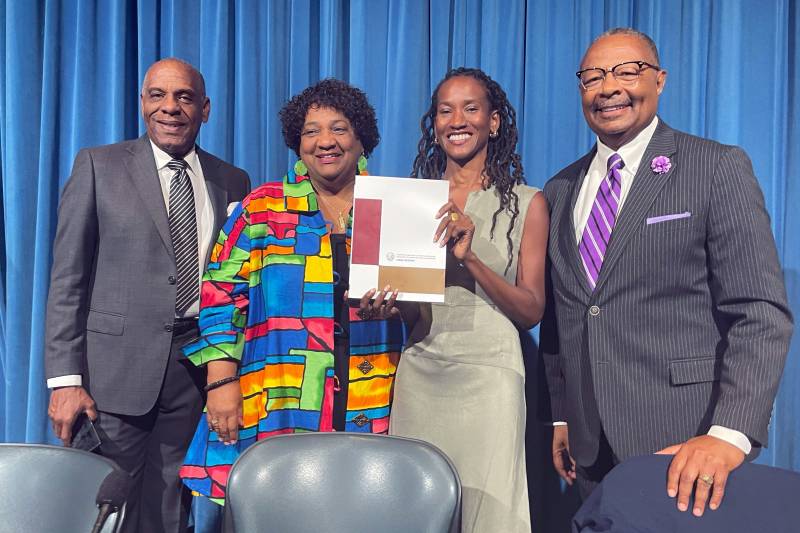Between the lines: Wednesday’s press conference was the second rollout of reparations bills. Or the third if you count a solo press call held by state Sen. Steven Bradford, D-Gardena, on his reparations proposals. The uneven rollout has been criticized as disorganized and lacking a cohesive vision — critiques which lawmakers hoped to put to rest by laying out the reparations bills they will be prioritizing.
The latest: On Tuesday, the Assembly Judiciary Committee approved ACR 135, a resolution acknowledging the role of California lawmakers who worked to advance slavery in the state. All nine Democrats on the committee voted to support the resolution, while the three Republicans abstained.
Warning signs: Asm. Diane Dixon, R-Newport Beach, was one of the Republicans who abstained, saying she had not yet read the report. She condemned racist laws passed by early state lawmakers but drew a line. “As California legislators today, we can be proud that in the second half — it took a long time — of the 20th century, we became a national leader in extending civil rights to African Americans and others,” she said. Her statement drew rebukes from members of the Black Caucus, who said discriminatory policies have continued in the state.
What’s next: The bills touted on Wednesday must now clear policy committees in either the Senate or the Assembly by April 26.
What they’re saying: California Legislative Black Caucus Chair Lori Wilson, D-Suisun City, is setting a high bar for the 14 bills before the legislative session ends on Aug. 31. “Success looks like our priority package getting done,” she said.
